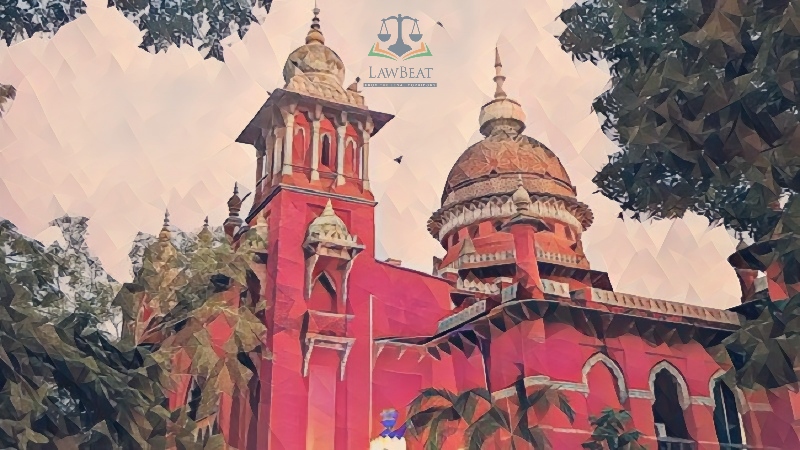Appointment of Archakas Of Agamic Temple Shall Be Dealt With As Per Agamas: Madras High Court

In a petition challenging advertisement for the post of Temple Archaka at Sri Sugavaneswarar Swamy Temple, the Madras High Court has recently held that hereditary rights cannot be pressed in view of the earlier settled precedents and no caste pedigree can follow as well.
The Madras High Court in its recent judgment held that while hereditary rights and pedigree based on caste will have no role to play in the appointment of Archakas, the same shall be done for agamic temples as per agamas and not as per rules 7 and 9 of the 2020 rules that provide for short certificate courses for appointment.
Justice N Anand Venkatesh, while issuing directions to the respondents for the release of a fresh advertisement, said, "it is always left open to the Trustees/Fit Person to appoint Archakas/Sthanikam in Agamic temples (where there is no doubt on the Agama that governs the temple) by ensuring that the Archakas/Sthanikam are well-versed, properly trained and qualified to perform the pooja as per the requirements under the Agama. At the risk of repetition, it is made abundantly clear that the pedigree based on caste will have no role to play in the appointment of Archaka if the person so selected otherwise satisfies the requirements… That apart, while issuing an advertisement and calling for applications, no reference shall be made to Rules 7 and 9 of the 2020 Rules and the appointment will be governed by the requirements under the Agama. Such requirements shall also be specifically stated in the advertisement."
Placing reliance on the observations in Seshammal v. State of Tamil Nadu,1972 (2) SCC 11, Court at the outset dismissed the contention of hereditary right as pressed by the petitioner.
As per All India Adi Saiva Sivachariargal Seva Sangam case, Court said that the appointments shall be made as per Agamas and not as per rule 7 and 9 of the 2020 rules, which provide for short certificate courses for such appointments.
Disposal of questions as raised in the review of Kantaru Rajeevaru need not be awaited, Court further added.
Precedents on Appointment of Archakas as referred by the Court
(i) Seshammal v. State of Tamil Nadu, 1972 (2) SCC 11: Appointment of Archaka is a secular act and hence hereditary right cannot be claimed – rule of next in line cannot be insisted as the appointments are made by shebaits/managers of the temple and they cannot make an appointment on the sole ground that a candidate is next in line of succession to the last holder of office.
(ii) Adi Saiva Sivachariargal Nala Sangam v. Government of Tamil Nadu, (2016) 2 SCC 725: The Court reiterated findings of the Seshammal Case and added that such appointments must be done in conformity with the constitutional mandates.
(iii) AS Narayana Deekshitulu v. State of AP and Ors, (1996) 9 SCC 548: Abolition of the hereditary right to appointment is not violative of either Article 25(1) or 26(b) of the Constitution – “The legislature is competent to enact the law taking away the hereditary right to succeed to an office in the temple and equally to the office of the priest (archaka). The hereditary right as such is not integral part of the religious practice but a source to secure the services of a priest independent of it. Though performance of the ritual ceremonies is an integral part of the religion, the person who performs it or associates himself with performance of ritual ceremonies, is not. Therefore, when the hereditary right to perform service in the temple is terminable by an owner for bad conduct, its abolition by sovereign legislature is equally valid and legal”, Court said.
(iv) N. Adithayan v. Travancore Devaswom Board, (2002) 8 SCC 106: In this case, Court dealt with the issue where a right was claimed under a custom, which restricted that the priest can only be a Brahmin – “Any custom or usage irrespective of even any proof of their existence in pre- constitutional days cannot be countenanced as a source of law to claim any rights when it is found to violate human rights, dignity, social equality and the specific mandate of the Constitution and law made by Parliament”, Court observed.
Brief Background
The present writ petition was filed by Sthanikam of Sri Sugavaneswarar Swamy Temple, assailing the advertisement dated 18.01.2018 issued by respondents 2 and 3, calling for applications to the post of Archakas/Sthanikam at Sri Sugavaneswarar Swamy Temple, Salem.
The petitioner hails from the family of Sivachariyars and their family has been performing the rites and rituals at the temple from time immemorial and the position of Sthanikam was occupied as a hereditary right. Accordingly, after his grandfather the petitioner took over the position of Sthanikam and was performing the Poojas.
It is the case of the petitioner that respondents 2 and 3, issued the said advertisement, infringing the hereditary right of the petitioner of performing poojas at the aforesaid temple. Reliance was placed on the decision in All India Ai Saiva Sivachariargal Seva Sangam and Ors. and the pending question of religious practice in Kantaru Rajeevaru to submit that the appointment of an Archaka may be a secular act but the ritual that is performed by Archakas for the deity, in line with the Agamas, is a religious function which boils down to religious faith and practice.
The Government Pleader for the respondents contended that the interview for the said post is conducted by a team of members who are experts in the relevant field and that the appointment of Archakas/Sthanikam will be taken care by the Committee as such.
Case Title: Muthu Subramania Gurukkal vs. Commissioner | WP No. 3997 of 2018
